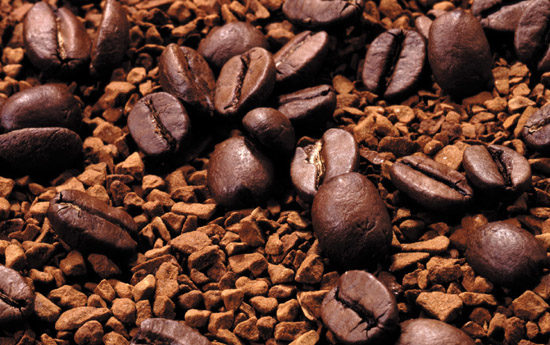Coffee Benefits: Although caffeine is linked to the coffee from which it takes its name, this alkaloid is found in a host of products. Tea and chocolate contain large quantities of tea, such as cola nut, guarana, and yerba mate. They are also found in various soft drinks, including colas, energy drinks, sweets, medicines such as analgesics, and medicines to relieve the symptoms of cold and flu. Health Canada experts estimate that about 60% of the caffeine consumed by Canadians comes from coffee, while tea contributes about 30%. Soft drinks, chocolate, and medicines would account for the rest, about 10% of total consumption.
Acting on the neurotransmitters of the central nervous system, caffeine has a stimulating effect. Quickly metabolized by the body, it penetrates all tissues, including those of the brain. The maximum amount of caffeine in the blood reached 45 to 90 minutes after ingestion and it takes 2.5 to 4.5 hours to decrease by half.
When was the last time you heard a doctor pronounce the word miracle? Well, it’s time, coffee deserves it because of its benefits! “Coffee is really a miracle cure,” says Sanjiv Chopra, a specialist in the liver and biliary tract and a professor of medicine at the Harvard Medical School.

Coffee Benefits
Although he admits that the action of a simple cup of coffee and its benefits to the body still belongs to the “scientific mystery”, large epidemiological studies have repeatedly confirmed its astonishing benefits. Recent research highlights include:
1. The Benefits of Coffee Act As a Miracle Cure
- Drinking more than 3 cups per day reduces by 20% the risk for women to develop the most common skin cancer.
- Drinking more than 6 cups a day reduces the risk of men dying from prostate cancer by 60%.
- At least one cup of coffee per day reduces the risk of stroke by up to 25% in women.
- A minimum of 2 cups a day can reduce the risk of women becoming depressed by 20%.
2. For More Benefits, Drink Black Coffee!
“Drink it black, or with a cloud of skim milk to decrease the calories,” says Dr. Chopra. As the benefits of decaffeinated coffee are not as prodigious, it is better to stay with ordinary coffee if you can tolerate it. Dr. Chopra drinks at least four cups a day, while the majority of people are limited to two cups. “No, I’m not sponsored by Starbucks,” he jokes.
3. Coffee Is Antioxidant
The coffee beans are rich in antioxidants, and more particularly in chlorogenic acid and melanoidin. Researchers have shown that a cup of coffee contains more antioxidants than the same amount of grape juice, blueberry, raspberry, or orange. In addition, a Swedish study showed that coffee would contain more phenolic compounds than tea and cocoa, two well-known and well-known sources of phenolic compounds.
Does the added milk and/or cream affect the absorption of antioxidants?
A recent study in The Journal of Nutrition showed that adding milk or cream to coffee did not interfere with the absorption of antioxidants, but that it was preferable not to add sugar to coffee because It would delay the absorption of its antioxidants.
4. Prevention of Parkinson’s Disease
Studies are increasingly revealing that regular consumption of coffee could potentially reduce the risk of Parkinson’s disease.
5. Reduce Liver Damage
Coffee would protect against alcoholic cirrhosis, as drinking three or more cups of coffee per day would potentially reduce the progression of chronic hepatitis.
6. Gallbladder and Kidney Stones
Compared to non-coffee drinkers, heavy drinkers (4 cups or more per day) would have 25% less risk of having stones, also called gallbladder and kidney stones. Drinking at least one cup of coffee a day would reduce the risk of contracting by 10%.
7. Reduce the Risk of Gout
Large consumers of coffee (4 cups or more per day) would be 40% less likely to develop gout than small and medium-sized consumers (1 to 3 cups of coffee per day), who would see their risks turn around 8%.
8. Performance at Work
Caffeine is a stimulant. Several studies have highlighted the beneficial effects of caffeine on alertness and attention.
9. Alzheimer’s Disease
Several studies comparing moderate coffee drinkers (2 cups per day) with light consumers (1 cup per day) found that those who drink the most coffee in the middle of their lives were significantly less likely to develop Alzheimer’s later In their lives.

Coffee Contraindications
Caffeine is generally not recommended for people with heart disease, insomnia, anxiety disorders, gastric or duodenal ulcers, or high blood pressure.
Coffee Side Effects
- Caffeine can cause insomnia, nervousness, agitation, and gastric irritation.
- Taken in large quantities, caffeine can cause nausea, vomiting, high blood pressure, heart palpitations, arrhythmia, accelerated breathing, muscle cramps, and headaches.
- The prolonged consumption of caffeine is addictive. Weaning can lead to headaches, irritability, nervousness, anxiety, drowsiness, dizziness, and confusion.
- Epidemiological studies contradict the effect of caffeine and coffee consumption on the risk of fracture caused by osteoporosis. Moreover, because osteoporosis caused by a number of factors, it is not certain that caffeine in coffee-related to a possible adverse effect in this respect.
When in doubt, experts usually recommend that seniors, in addition to ensuring an adequate intake of calcium and vitamin D, limit their intake of coffee to 3 cups per day.

Coffee Interactions
1. With Plants or Supplements
Caffeine / Ephedra: a dangerous association. I think caffeine has, in particular, an appetite suppressant effect. For this reason, it’s used in combination with ephedra. This combination can promote a slight weight loss in the short-term, as part of a low-calorie diet. However, the use of this type of product is not recommended. Indeed, not only ephedra and ephedrine have potent potentially dangerous stimulating effects, but caffeine increases them.
In May 2006, Health Canada issued a warning against the consumption of slimming products containing caffeine and ephedrine (the latter may also be referred to as ma huang, or ephedra on the label). It was noted that the sale of products containing both a stimulant such as caffeine (guarana, green tea, yerba mate, cola nut) and ephedra or ephedrine, is prohibited in Canada. noted that products combining caffeine with bitter orange extracts – the plant that replaced ephedra in slimming cocktails – are now marketed but may have the same undesirable effects.
2. With Medications
Caffeine can:
- Increase the effects of analgesics such as acetaminophen and acetylsalicylic acid, but also to increase substantially the absorption (of the order of 40%), dangerous in the case of acetaminophen (toxicity to the liver)
- Reduce the effects of sedatives such as benzodiazepines
- Increase the adverse effects, including cardiac effects, of theophylline and bronchodilators
- Increase the adverse effects associated with central nervous system stimulants such as ephedrine
Cimetidine: This medicine, prescribed to patients suffering from peptic ulcers, considerably slows the elimination of caffeine by the body, which can increase the undesirable effects of the latter.
Clozapine: Caffeine may exacerbate the effects and toxicity of this neuroleptic.
Antacids: Caffeine can counter the effect of antacids because it stimulates the production of acid by the stomach.
Alendronate: Caffeine may inhibit the absorption of this medication prescribed to prevent and treat osteoporosis. Avoid taking caffeine 2 hours before and after taking the medication.
Anticoagulants / antiplatelet agents: Caffeine may increase the risk of hemorrhaging in people treated with anticoagulants.
Nicotine: Caffeine may increase the risk of nicotine dependence.
Other: Because they increase the level of caffeine in the blood, alcohol, oral contraceptives, estrogen and certain antibiotics (disulfiram, riluzole, terbinafine, verapamil, fluvoxamine) can increase their adverse effects.


